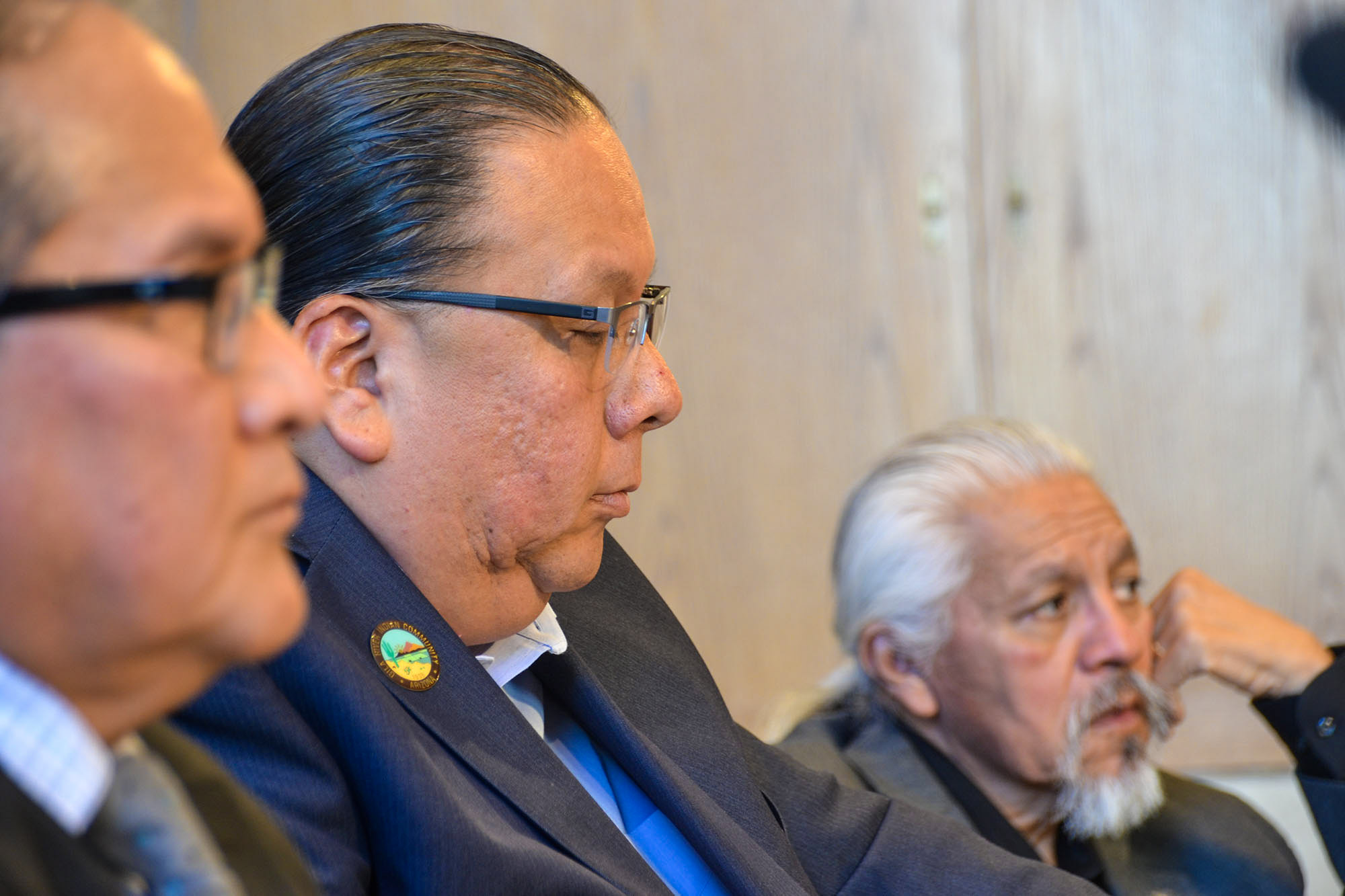The hearing came just days after a federal judge temporarily blocked a Census Bureau plan to end enumeration operations on September 30, a month sooner than had been planned. The judge in that case said plaintiffs, including two Arizona tribes, had raised “serious issues” about the shortened timeline. That was supported by witnesses at Thursday’s hearing on “Providing the Census Bureau with the Time to Produce a Complete and Accurate Census,” with Thompson testifying that ending the count early could affect the “accuracy and quality” of the 2020 census. “Hard-to-count communities have a significantly lower level of self-response,” Thompson said. “Not making appropriate enumeration attempts with staff who have the proper understanding and language skills in these areas will lead to a higher proportion of incomplete responses.” That is a problem in many tribal areas, where cultural, language and logistical challenges in the often-rural areas makes it hard to get an accurate count.A federal judge has temporarily blocked the Trump administration from putting an early end to the #Census2020 as part of a lawsuit joined by the Navajo Nation and the Gila River Indian Community. @NNPrezNez @GRIC_Official #IndianCountryCounts https://t.co/pxbq3GjlJa
— indianz.com (@indianz) September 10, 2020
But Rep. Paul Gosar, R-Prescott, noted that the bureau is catching up quickly, even in states like Arizona that trail the national average for responses. “Census data reported as of yesterday (Wednesday) that 80.8 percent of Arizona is enumerated,” Gosar said. “This is well below the majority of states yet just a few days prior to this report, the Census Bureau stated was just 76.2% enumerated. “This appears to be a very productive spike in a short number of days” he said. As of Thursday, the total response rate for Arizona had risen to 81.7%, fifth-lowest in the nation.The U.S. Census Bureau has long failed to accurately tally populations in Indian Country. #COVID19 is hampering attempts to fix that. #Coronavirus #Census2020 #IndianCountryCounts https://t.co/UpgmfrrL00
— indianz.com (@indianz) September 10, 2020
In an ordinary Census year, enumeration would end July 31 and the bureau would deliver its count to the president by December 31 – a date that is set by law. But that schedule was thrown into disarray by COVID-19, which affected response rates and took enumerators out of the field early in the count. The bureau on April 13 said it would push the enumeration deadline back to Oct. 31 and ignore the December 31 deadline. That plan was suddenly changed August 3, when the bureau announced it would finish the enumeration by September 30. Civil rights groups, individuals and local governments, including the Gila River Indian Community and the Navajo Nation, sued to keep the October 31 date. They argued that a census undercount could severely affect minority communities over the next 10 years, in terms of congressional representation, federal funding and more. A federal district judge in California agreed with them Saturday, ruling they had raised “serious issues” about the shortened calendar and ordering the bureau to halt any moves toward winding down enumeration operations early. Her order lasts until September 17, when a fuller hearing will be held on the issue.Use the 12 digit number on your paper form to complete the #2020Census online at https://t.co/T2vyXgJR4t! Your participation in the #Census builds our communities’ progress & helps shape the future for generations to come. #becounted #IndianCountryCountshttps://t.co/R43mEC96Z8 pic.twitter.com/0FRQVHZlan
— Inter Tribal Council of Arizona (@ITCAOnline) September 14, 2020

Note: This story originally appeared on Cronkite News It is published via a Creative Commons license. Cronkite News is produced by the Walter Cronkite School of Journalism and Mass Communication at Arizona State University.
Senate committee schedules confirmation hearing for Interior nominee
Fact Sheet: Department of Health and Human Services to undergo ‘dramatic restructuring’
Press Release: Department of Health and Human Services to undergo ‘dramatic restructuring’
Native America Calling: The new Social Security reality for Native elders
Montana Free Press: Hip-hop artist Foreshadow celebrates latest release
Cronkite News: Bill creates alert system for missing and murdered relatives
Bureau of Indian Affairs approves HEARTH Act regulations for Mohegan Tribe
House Subcommittee on Indian and Insular Affairs sets field hearing for self-determination anniversary
Native America Calling: Sometimes, COVID doesn’t go away
Native America Calling: The changing landscape for subsistence hunting and fishing
Press Release: AIHEC ‘deeply concerned’ about closure of Department of Education
Press Release: Oklahoma Indian Gaming Association weighs in on sports betting legislation
Press Release: Sen. Mike Rounds (R-South Dakota) calls for commission on crime in Indian Country
Press Release: Sen. Schatz (D-Hawaii) criticizes closure of Department of Education
More Headlines